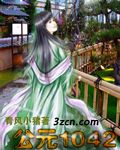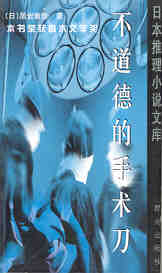04道德经英译本85种-第177部分
按键盘上方向键 ← 或 → 可快速上下翻页,按键盘上的 Enter 键可回到本书目录页,按键盘上方向键 ↑ 可回到本页顶部!
————未阅读完?加入书签已便下次继续阅读!
lusion; it is not in the unveiling of one of those heartless secrets which are called the Laws of Nature。 It is not less great; but only more difficult。〃
In the same way; Laozi(often spelled as Lao…Tzu); who wrote the Daodejing; tried to describe the indescribable。 The truth about the human mind; and about the universal mind; cannot be sought from without。 It must be sought from within us。 This understanding is a gift; and is not acquired。 Indeed; those who try to seek that truth from without are bound to fail。 Indeed; we need to unlearn to rediscover the gift。 From this perspective it is amazing how much in common there is in Laozi and in Conrad。 And it is just as amazing how much common ground there is in the teaching of the Buddha and in that of Laozi。
Laozi used words sparingly; truthful to his belief that words easily become superfluous。 People may be misled by words to think in crooked ways。 This is also exactly the message of Zen(or 〃Chan〃) Buddhism*。 He would rather use words that trigger the reflective mind。 As his subject is really indescribable; he would use symbols。 The proliferation of symbolism in the Daodejing is remarkable。 〃The Valley Spirit〃(##) is a case in point。 In Chinese; the valley provides the image of having a capacity to accept criticisms and alien views。 There is the expression 〃xuhai ruo gu〃(####); which means literally 〃humble and receptive like the valley。〃 The mystical female is another example of symbolism。 The door of the mystical female; which chapter 6 called the 〃root of heaven and earth;〃 stands for the source of abundance。 Laozi tells us that humility is the origin of creative ideas and a rich life。
The images in Laozi are very effective; but they require imagination。 Unfortunately; imagination can go wild; and often times; translators and readers are bewildered by the mystical use of language。
To understand Laozi; we have to understand that he offers a practical way of life; not a mystical recipe to immortality。 Paradoxically; however; this practical way of life offers a glimpse to the eternal world。 Watch Conrad's closing remarks in the Preface to The Nigger of the Narcissus: 〃behold—all the truth of life is there: a moment of vision; a sigh; a smile—and the return to an eternal rest。〃 Compare this language 〃a sigh; a smile〃 with the famous episode when the Buddha communicated with one of his disciples。 He took up a flower; smiled; and the understanding about life was instantaneously and spontaneously communicated to and realized by that disciple。 Then of course there is that famous verse from William Blake: 〃To see a world in a grain of sand and a heaven in a wild flower; hold infinity in the palm of your hand; and eternity in an hour。〃 Truthfulness is eternal。
Consider Laozi's Chapter 70; in which he says 〃What I say is easy to understand and easy to practice yet few people under heaven understand and practice it。〃 Compare this with the opening sentence in Chinese Zen (Third Patriarch)Master Sengcan's (##) Song of the Truthful Mind (###) which reads 〃The supreme way is not difficult; so long as people refrain from preferences。〃 (####;####) The importance of the undiscriminating mind is clear in Chapter 49: 〃If people are good; I shall be good to them。 If people are not good; I shall also be good to them。 This way I am really good。 If people are truthful; I shall be truthful to them。 If people are not truthful; I shall also be truthful to them。 This way I am really truthful。〃 The Sage's mind is uncalculating and free from all pretences like an infant's。 Again quoting from Sengcan 〃All tendencies to go to one extreme or to the other arise from the calculating mind。〃(####;####。)
What is; then; this practical way of life that Laozi recommends? It is a life in unison with nature。 To be with nature is to forget about the narrow self that limits our potential for development。 If something is done; one who follows the Dao would not say: 〃It is me who achieved it。〃 One would not take any credit because; in the first place; there is no concept of me or I as a separate; independent existence。 Moreover; one would only be doing things that one's inner nature calls upon and enables one to do。
To be with nature one will realize a subtle joy; and this joy is not something to be reaped in the next world。 Some people think that Daoist philosophy is 〃out of the world〃 but it is really very much 〃of the world。〃 In Chapter 80; Laozi saw a world in which people enjoy their foods and beautiful dresses; live happily in peace; and take delight in their traditions。
Consider Chapter 59; in which Laozi says; 〃To rule over men or to serve heaven nothing works as well as following the farmer's example。 The farmer does his preparatory work early。 To be like him; one must pay attention to the accumulation of virtue。 That way one can overcome all difficulties。 That way one's ability knows no limit。 That way one can sustain a nation。〃 Chapter 64 advises: 〃People often fail in their tasks when they are about to accomplish them。 If only they take the same care in the end as they do in the beginning; they will avoid many failures。〃 These are of course very practical; and certainly this…worldly; words of advice。
Because Laozi used his words so sparingly; and because the Chinese language is such that one word can carry multiple meanings; it is easy to be misled。 But Laozi never worried about this problem; because after all the insight has to come from within。 So he is sure that those who sincerely seek the truth will see the truth(〃The door will open up to whoever knocks;〃 as Jesus says)。 Still; we should avoid jumping to conclusions。 For example; the word # is often translated into quietness。 But it also means ## 〃still;〃 〃undisturbed;〃 or 〃rest。〃 There is reason to believe that Laozi referred to stillness more than to quietness here; since quietness comes from without and stillness of the mind comes from within。 Keenly aware of the enlightenment that comes from within; Conrad also talked about the 〃eternal rest。〃 Both Laozi and the Buddha talked about seeing reality as it is when the mind is not disturbed。** Another confused and confusing word is # as used in Chapter 25。 # is commonly translated into king。 But in the context Laozi really meant the man who follows the Dao。 A king who does not follow the Dao cannot be great。 This should be very clear from the last line in Chapter 25; in which he says: 〃The (great) man emulates the (great) Earth。 The (great) earth emulates the (great) Heaven; The (great) heaven emulates the (great) Dao。 The (great) Dao emulates the (great) Nature。〃
The Daodejing is difficult to read because the language sometimes breaks grammatical rules in order to read smoothly。 For example; in Chapter 13; the phrase #### should be understood as ####。 In Chapter 4; #### should be read as ####。 Sometimes; in favor of brevity; Laozi deliberately left out some words。 But in the context what he really means should be clear。 Disappointingly; some translators took it literally and often missed the context。 This is the case with Chapter 52; in which he advises that as long as we understand that we are the sons and daughters of nature and do our role to respect nature and the good earth as we would respect our mother; we will not run into disaster。 He then says that blocking the passages and shutting the doors we would be fine while clearing the passages and opening the doors we would be doomed。 What he really means from the context is that if we respect nature we will not run into disaster; even if the passages are blocked; but if we forget our role as sons and daughters of nature we would run into trouble。
Laozi wants to address the common human weaknesses。 He says things that seem extreme; with the attention of shocking readers into self…reflection。 Chapter 12 and Chapter 65 are cases in point。 In Chapter 12; he tells us that 〃Just as the five colors that we see can blind us; so the five sounds that we hear can deafen us; and the five tastes can dull our sense of taste。〃 In my translation I added the word 〃can〃 to make it sound less extreme。 It is likely that the original language sounds extreme because Laozi wanted brevity and/or a shocking effect to make people think。
In Chapter 65 Laozi says; 〃The ruler who rules with his acquired knowledge is likely to hurt the nation。 The ruler who rules not with his acquired knowledge is likely to benefit the nation。〃 Certainly we cannot agree that all acquired knowledge is bad for a nation。 But the fact is that many people think that they are very clever; and that they can use their knowledge to make great strides。 Laozi warns against that kind of arrogance。 The word 〃likely〃 is not in the text of Daodejing。 But it is clear that he does not really condemn education and knowledge acquisition (See Chapter 71; for example)。 After all he wrote using words that he had learnt as a child。 So putting in the word 〃likely〃 should preserve his real meaning and help avoid misunderstanding。 It is in this spirit that I conducted my translation。 Whenever I added words that are not in the original text; however; I would put in a footnote and explain。
For the convenience of the reader I have taken the liberty to add a small title to each of the 〃chapters〃 to capture the essence of message。 It is my fervent hope that Laozi's message be put across to as many people as possible。 I can say that Laozi did not write the Daodejing as a Chinese; but as a member of the human race。 I hope that readers will see the Daodejing not as a sample of Chinese philosophy; but as an exploration to the meaning and value of life itself from someone whose inner reflections are unusually sharp and downright honest。
November13; 2001; Lingnan University; Hong Kong
* Zen is the Japanese pronunciation of the Chinese word 〃chan;〃(#) which is itself the transliteration of the Sanskrit term dhyana。
** There is a famous episode wherein the sixth patriarch of Zen Buddhism; Hui…neng; upon hearing two observers debate over whether it was the wind that was moving or the flag flying in the wind that was moving; pointed out that the observers were themselves confused; their minds having been moved by what was observed。
1





